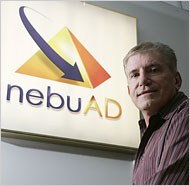G. Pascal Zachary authored an article in the New York Times on March 30, 2008 entitled Thinking Outside the Company's Box.
“One of the oldest barriers to innovation is ‘Not Invented Here,’ a persistent bias of even the most creative people toward their own creations and against those of people who work for other companies. […] To help counteract N.I.H., large corporations have promoted technology alliances with rivals, as well as the concept of ‘open innovation,’ to draw on a wider circle of big brains — not on their payroll — to work on core technical problems. These efforts arise from the recognition that no single innovator or team, no matter how loyal to an employer or successful in the market, has a monopoly on wisdom.”
This is an interesting article that revolves around the steps and processes that Cisco Systems, obviously one of the big boys, is internally exercising in an attempt to overcome the NIH syndrome.
Compare Zachary's article with a presentation made by Peter N. Detkin, Founder and Vice-Chairman of Intellectual Ventures, on March 7, 2008 to the Washington State Bar Association. The presentation is entitled Investing in Invention. Here's his premise, and it's a good one:
“Corporations are not a major source of invention …. Academics are not a major source of invention …. Startups are a source of invention …. Individuals are a .... huge source of invention.”
Detkin is a former vice president and assistant general counsel to another one of the big boys, Intel Corporation. I have no relationship with either Detkin or Intellectual Ventures. But that Detkin is an attorney, and that he talks about how to level the playing field for the little guy, probably has something to do with why I like his presentation. In it he succinctly begins his presentation by describing the significant inefficiences in the marketplace for the monetization of patents by start-ups and individuals. Then he finishes by providing hope that new business models are bringing efficiencies to the IP marketplace.
For those of you who may be interested in a more scholarly approach, also take a look at Detkin's law review article entitled, Leveling the Patent Playing Field, published by The John Marshall Review of Intellectual Property Law.
So allow me to coin a phrase I'll call the "Mostly Invented Somewhere Else" cure. Think of the MISE cure not as one single process or business model for bringing efficiencies to the IP marketplace. Think of it as an attitude. Isn't this what Cisco is trying to do? Introduce a MISE-type attitude cure for the NIH syndrome? Isn't that what Detkin is trying to do, too?
Yes, and kudos to both Cisco Systems and Detkin.
 Tuesday, April 8, 2008 at 3:00AM
Tuesday, April 8, 2008 at 3:00AM  Robert Dykes, a long time Silicon Valley executive who started the company two years ago, says it has been up and running since last fall and will soon be monitoring the activities of 10 percent of Internet users in the country, mainly customers of small and medium Internet service providers." (emphasis added)
Robert Dykes, a long time Silicon Valley executive who started the company two years ago, says it has been up and running since last fall and will soon be monitoring the activities of 10 percent of Internet users in the country, mainly customers of small and medium Internet service providers." (emphasis added)
